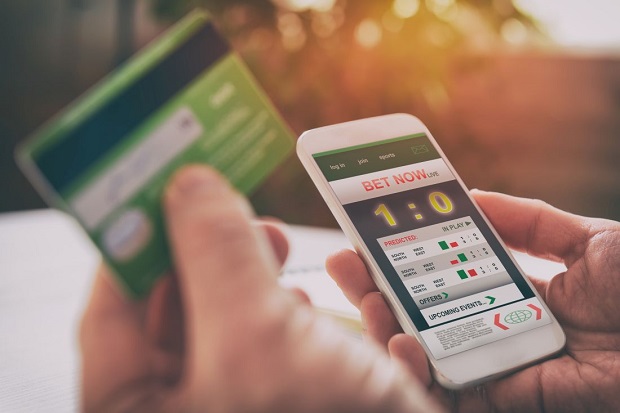- Arsenal looking to hijack Man Utd’s deal to sign Cunha
- Arsenal eye move to sign Barcelona star Raphinha
- Arsenal eye Delap as support for marquee striker
- Arteta offers worrying fitness update ahead of Palace clash
- Arsenal ‘really interested’ in signing Dean Huijsen
- Arsenal plot audacious swoop to sign Florian Wirtz
- Arsenal Interested in Bilbao Midfielder Sancet
- Arsenal in race to sign Hjulmand from Sporting CP
- Arsenal ‘open talks’ to seal early deal to sign Gyokeres
- Arsenal ‘keen’ on signing West Ham ace Mohammed Kudus
From Stadiums to Smartphones: How Mobile Betting Is Changing Football Culture
The thrill of football used to be contained within stadium confines. Cheering, chanting, and seeing history unfold from the stands, fans would swarm into enormous arenas. These days, a different screen—the smartphone—is being used more and more to experience the same excitement. Football culture is changing quickly as a result of the rise in popularity of mobile betting. Football has evolved from a spectator sport to a vibrant betting market that is affordable.
Sports fans in places like the UK, Europe, and Australia see this change clearly. Betting has been part of their culture for a long time. How, when, and why people play the beautiful game has changed as a result of the growth of mobile sportsbooks and new online casinos australia.
The Development of Fan Involvement
The job of a fan was mainly passive in previous decades. You picked a team, purchased tickets, sometimes a jersey, and kept track of the outcomes of the games. However, a more participatory experience has been brought about by mobile betting apps. Supporters are always looking for a betting edge. They check player stats, injury updates, and weather forecasts.
Casual viewers are now more involved in every kick, pass, and card as a result of this deeper engagement. A usual game can feel more personal with just a small bet on corners or the first goal scorer. Participation, not merely observation, is now central to football culture.
Wagering and Immediate Satisfaction
The growth of in-play or live betting is one of the most significant developments brought about by mobile platforms. As the game progresses, users can place bets on a variety of outcomes, including as who will score next, how many players will be sent off in the second half, and more, unlike traditional bets that are placed prior to kickoff.
A new kind of football fan has come about due to real-time betting. This fan pays close attention to every change in momentum, not just the game itself. Possible payouts rely on your instincts and quick thinking, making each match feel like a tactical puzzle.
Consequently, this has affected the way that people use matches. The distinction between viewing and betting has become hazy, phones are out, and apps are open. Some might contend that the sport’s integrity is diminished by this divided attention. Some regard it as a contemporary level of involvement.
Social Media’s Function
Mobile betting has become more popular thanks to social media. You can find tipsters, match previews, and betting memes on social media. Instagram, TikTok, and Twitter are full of them. Highlight reels are edited with betting comments in mind, and odds updates are shared alongside team lineups.
Nowadays, there is a global network of predictions, responses, and teasing among football fans, most of which is fueled by bets. A late goal alters thousands of wagers worldwide in addition to the score. Because of these connections, football betting has become a common topic of discussion.
Hazards and Accountability
There are risks associated with gamifying football, of course. Particularly for younger users, easy access to mobile betting apps might result in obsessive behavior. Mobile platforms are always available, unlike traditional bookies. They feature stunning designs and fast deposits. But these perks can hide the real cost of betting.
There is growing pressure on football teams and bookmakers to encourage responsible gaming. While some teams provide instructional campaigns on safe betting practices, some have even taken action to lessen the visibility of betting companies’ sponsorships.
Regulators worldwide are tightening laws against unlicensed businesses. They also promote better age verification and self-exclusion methods. However, balancing innovation and security is a constant issue due to the rapid advancement of technology.
Global Technology Meets Local Traditions
The way that mobile betting is fusing international technology with regional football customs is very intriguing. It is possible for a Liverpool supporter to use the same betting app as someone in Sydney or Lagos. Their reasons for betting can differ a lot. One person might want to make money, while another is just trying to enjoy a weekend game.
Mobile platforms have special features that make the experience feel more personal. These include local currency odds, location-based promotions, and interfaces in your native language. So, even though the technology is global, it connects with users in a more intimate way. Because of this, football betting is becoming into a sort of universal custom that is influenced by culture but bound together by practicality.
Where Everything Is Going
The significance of mobile betting in football culture is only expected to increase in the future. Innovations like augmented reality, AI forecasts, and cryptocurrency betting are changing how fans enjoy matches. Picture getting personalized betting tips that match your past habits and favorite teams. Or, point your phone at a live game and see live betting odds displayed over the players.
Mobile betting is now a key part of modern football. Traditionalists often complain about the commercialization of the fan experience, but this trend is hard to ignore. It has altered our viewing habits, priorities, and even how we recall games.
Football is now played in real time, in our pockets, and with each flip of a betting slip. It is no longer only played on the field.


